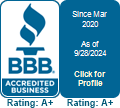
Smart Money Moves: Navigating Finances in the U.S.
Managing money is the key to building a stable future, whether you are an immigrant adjusting to a new financial system or a U.S. citizen looking to improve your financial habits. The U.S. financial landscape can be complex, with credit scores, taxes, and investment opportunities playing a crucial role in economic success. Understanding these concepts can help individuals, especially those with fluctuating incomes like drivers and gig workers, make informed decisions.
From navigating credit scores to handling debt, here are financial strategies to help you manage your finances.
Understanding and Building Credit
In the U.S., a good credit score is essential for renting an apartment, getting a loan, or even securing some jobs. If you are new to credit, open a secured credit card or become an authorized user on a family member’s credit card. Paying bills on time is crucial—late payments can damage your score. Keep credit card balances low and avoid maxing out your limit to maintain a healthy credit profile.
Budgeting for Stability
Tracking your income and expenses helps prevent overspending and ensures financial security. Budgeting apps like Mint, YNAB, or PocketGuard can simplify the process. Prioritize essential expenses like rent, groceries, and gas, followed by savings and debt payments. If you have an irregular income, such as from rideshare or trucking work, base your budget on your lowest monthly earnings to avoid financial strain.
Avoiding Debt Traps
Credit cards and personal loans can be helpful but risky if not managed carefully. High interest rates can quickly lead to unmanageable debt. Avoid payday loans and high-interest installment plans. If you want to take out a loan, consider lower-interest options like credit union loans or 0% APR introductory credit cards. Paying more than the minimum balance on credit card bills helps reduce interest payments and clears debt faster.
Smart Ways to Save Money
Building savings ensures financial security during emergencies. Open a high-yield savings account to earn better interest rates. Use cash-back and rewards credit cards wisely to get benefits on purchases. Take advantage of fuel, grocery, and shopping discounts through loyalty programs. Cutting unnecessary subscriptions and opting for budget-friendly alternatives can free up extra money for savings and debt repayment.
Handling Money Transfers Wisely
If you send money abroad, compare fees and exchange rates before choosing a service. Online platforms like Wise, Remitly, or Revolut often offer lower fees than banks. Setting up automated transfers can help avoid last-minute high-fee transactions and ensure timely payments to family members.
Managing Taxes and Maximizing Deductions
Understanding tax obligations can help you save money. Keep track of work-related expenses, especially if you are self-employed or a driver, as these may qualify for deductions. Software like TurboTax or H&R Block or consulting a tax professional can help maximize savings. Consider tax credits like the Earned Income Tax Credit (EITC) and reduce tax liability.
Planning for the Future: Saving & Investing
Securing long-term financial stability involves smart saving and investing. Open a retirement savings account (401(k) or IRA) to build wealth for the future. If your employer offers a 401(k) match, contribute enough to get the full benefit. Consider low-risk investments, such as index funds, to grow your money steadily over time.
Final Thoughts
Smart financial habits can make a big difference in achieving stability. Whether you are managing debt, building credit, or planning for the future, small steps today can lead to long-term security. Stay informed, budget wisely, and make choices that support your financial well-being.


